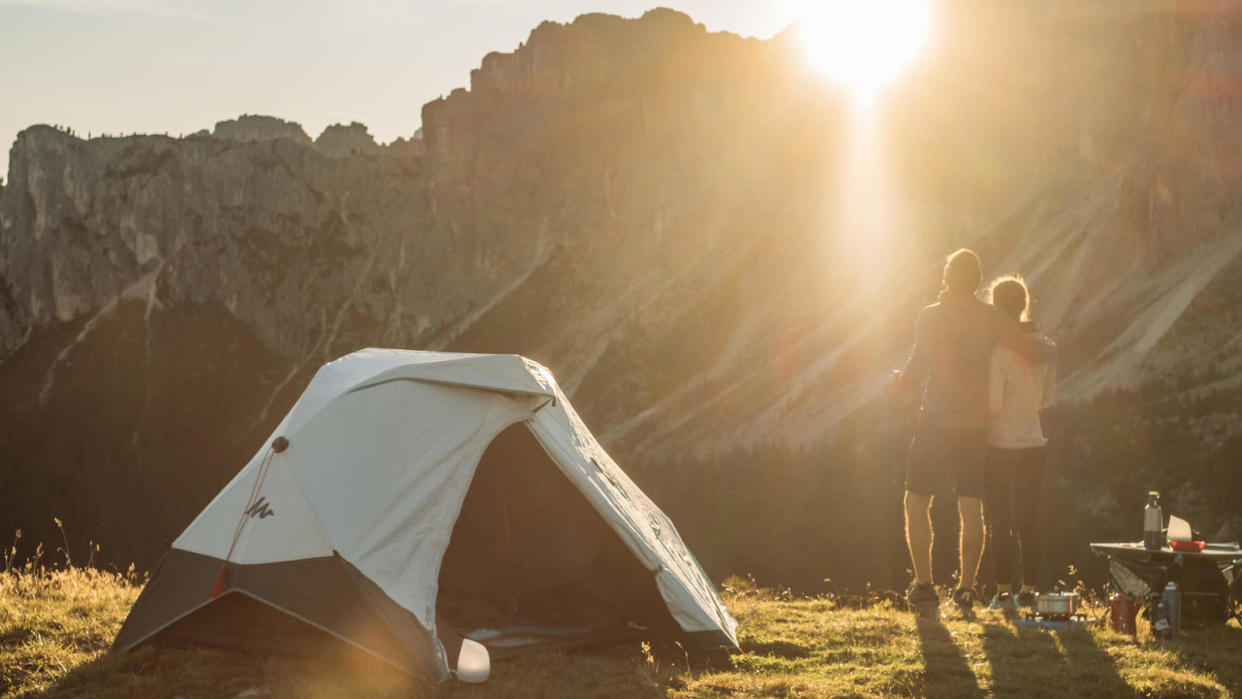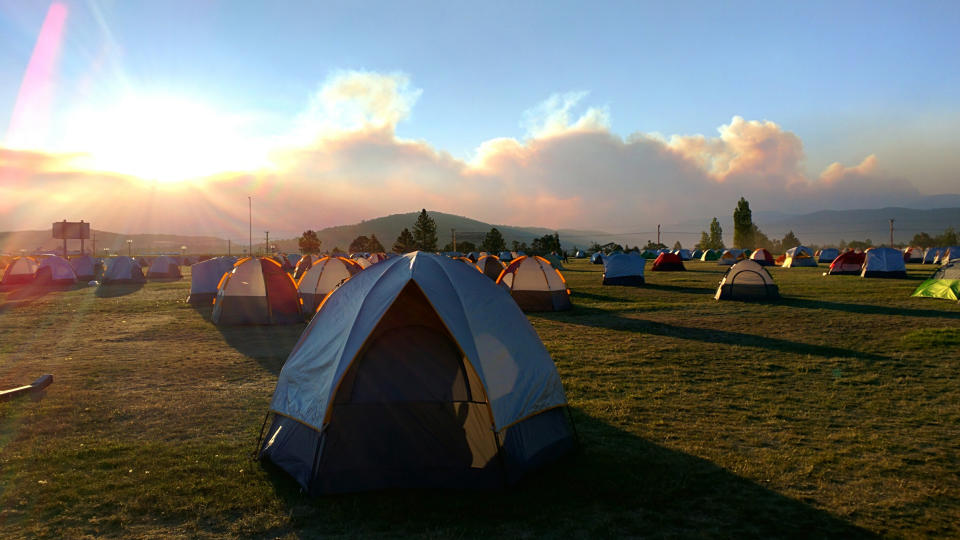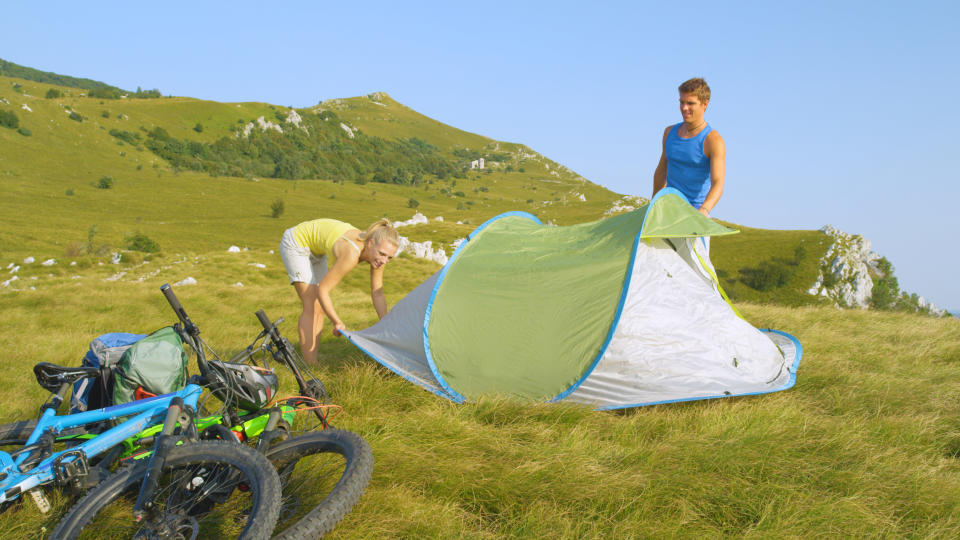Should I buy a pop-up tent? We weigh up the advantages and disadvantages

Should I buy a pop-up tent? if you've got easygoing summer camping trips or music festivals on the agenda, we'd say go for it. After all, they take the faff out of pitching, giving you more time to enjoy family shenanigans or your favorite bands. This is because they literally pop up in an instant, leaving just the pegs and guy lines to sort. Not only this, they tend to be portable, lightweight and affordable too.
However, pop-up tents have long had a reputation for not being the most durable of camping products, nor the most weatherproof. This means, while they're suited to casual summer camping, they're not often taken seriously by backpackers who demand the very best tents for their backcountry escapades.
Is this still the case? I'm here to give my verdict on whether or not the pop-up tent's reputation is founded, first by considering the advantages and then the disadvantages of these fuss-free shelters.
Meet the expert
Today's best deals
Advantages of a pop-up tent

Ease of setup: Pop-up tents tend to spring to life when liberated from their (usually circular) carry case. This means that all you have to do is peg out the corners and pull the guy ropes out.
Portable: Pop-up tents usually come packed in a circular, lightweight fabric case that's easy to carry around.
Low cost: Most pop-up tents are competitively priced to attract the attention of newcomers to camping. A 2-person pop-up typically costs between $50 and $100, which is very cheap compared to most 2-person tents.
Easy(ish) to pack away: There's often a knack to folding your pop-up tent down and they certainly don't pack away quite as easily as they pop-up. However, once you've mastered it, you should be able to tidy away a pop-up tent much quicker than your standard camping tent.
Disadvantages of a pop-up tent
Not particularly weatherproof: Most pop-up tents can deal with a shower or two but in a strong deluge, you're likely to suffer leaks.
Unreliable fiberglass poles:Their flexible fiberglass poles make them flappy and unreliable in the face of high winds, too, even if you’ve pegged them in.
Limited space: Space is often limited – even four-person pop-up tents only have one bedroom, which limits the number of people and kit you can fit in, although some do have small porches, which makes it easier to store your backpack and boots. If you need a tent that can go further than sheltered campsites, pop-ups are not for you.
Durability: Pop-up tents are usually marketed at entry-level campers, which means the pricepoint is usually low. This means basic quality components and low durability. If you want a tent to last you a lifetime, it probably won't be a pop-up tent. The old adage applies here: if you buy cheap, you buy twice.
Sustainability: As they're less durable than tents made from higher quality fabrics and components, pop-up tents need replaced sooner. This is bad for the environment, as it means more stuff going to waste.
Light but not ultralight: A pop-up tent tends to be quite light, but nothing like a premium tent designed specifically for backpacking.
Verdict

The bottom line? A pop-up tent isn’t technical enough for mountain expeditions, and you wouldn’t want to take it on committing multiday treks either. It isn’t lightweight enough for wild camping, or portable enough for backpacking, and it’s only really suitable for warm summer weekends.
Even in some campsite, hardened adventures might scoff when you pop up your cheap-as-chips instant number, but that’s doing instant tents a disservice – they are designed to be pocket-friendly, fun, and totally headache-free. They are perfect for casual summer camping sleep-outs with friends, for use as spare ‘pup’ tents for the kids, as an easy hideaway when you’re at a festival, or just for popping open in the back garden or on a beach if you need an instant shelter.
Most are priced at under £50/$65 and are easy to slot under the bed and stick in the back of your car – so there’s no reason why you shouldn’t own one or two for more casual camping, alongside more weatherproof, technically-advanced tent models for more ambitious trips into the wild. For affordability and ease of use, we reckon that once you pop, you won’t stop.
